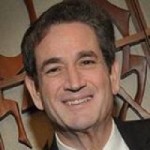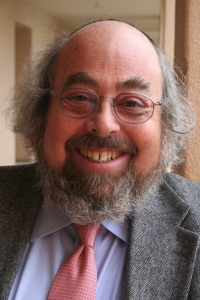

ENCINITAS, California — There is nothing in the ethos of Rabbi Wayne Dosick that represents a compromise with compassion. His books are deeply informed with text and brimming with the kind of energy associated with divine sparks. His rabbinate is as touched by the stars as it is focused upon a single human soul that interacts with him—during prayer, in a classroom, at a hospital bedside, or bent over the fresh grave of a loved one.
The prolific and enthusiastic scholar and consummate pastor, the longest-serving and arguably most beloved rabbi in the San Diego community, has now given us an uncommonly personal, accessible, and impeccably learned book about the very name of God.
There is no doubt that the ministering angels have added The Real Name of God [ANOCHI]: Embracing the Full Essence of the Divine’ into their celestial curriculum. And the angels have spent no time speculating or gossiping about any alleged “chutzpah” that may attend this effort to codify the Almighty’s moniker. We can almost hear them chattering with one another, “It’s fine. Dosick wrote it—who else?”
In exuberant and primed discourse, in eight-cylinder Dosickesque Torah-torque, the rabbi dances through and with the yearning and poignant dreams of biblical seers, oracles, matriarchs, warlords, naysayers, believers, musicians, and madmen. He masterfully elicits a documented list—from the scriptural tapestry—of various and intermittent names used or implied for God. Dosick ebulliently codifies for each designation an inflection, a condition of the spirit, a mood, or a specific emotional context that applies to its origin and usage.
In the process, Dosick takes us along, like guests on a modern Elijah’s chariot, upon a Jewish journey of divine nomenclature and earthly longing that addresses our theistic doubts, dispels our cynicism, nurtures our hopes, and then closes the issue of God’s real name. “The mystery is solved,” he declares. And we are not skeptical because, like the biblical pillar of clouds in the day and the corresponding pillar of fire at night, Rabbi Dosick makes his case with what scriptural critics call “primary evidence.”
In other words, the systemic evolving of God’s real name from an earlier assortment of designations and circumstances (Elohim, Shaddai, YHWH, Melech, Elyon, among others) into ‘ANOCHI’ is presented to us with historic insight, theological intuition, and cheerful good spirits. For Dosick, these various and powerful appellations are as real as the litanies and homages of men and women derived from the growth stages between human beings and the divinity.
But none of these names, which are used in both tribute-devotions and elegiac psalms, truly bridge God (ANOCHI) and us (ANOCHI-SELF). None of them bring us to the guttural, all-encompassing, “fullness and full essence of the complete God.” Dosick further expounds that “ANOCHI is Love—pure Love. And ANOCHI created us to be Love—pure Love.” Read this sweet and empathetic book and you will feel yourself in the palm of God.
Perhaps not since the Talmudic rabbis wrote two thousand years ago that “God created the world, but people are creating it,” has any Hebraic sage so eloquently summarized the intertwining hope of heaven with the aspiration of earth.
*
Rabbi Kamin is an author and freelance writer who resides in the San Diego suburb of Encinitas, California. He may be contacted via ben.kamin@sdjewishworld.com